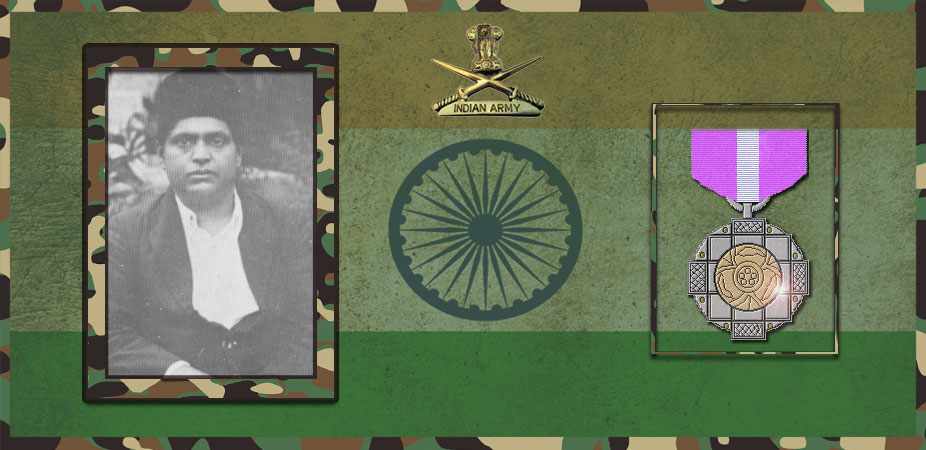Let's salute to our Indian Army together, We are proud to be Indian.
Let's salute to our Indian Army together, We are proud to be Indian.

Krishnarao Ganesh Phulambrikar (1898–1974), popularly known as Master Krishnarao, was an Indian vocalist, classical musician and composer of Hindustani music. He was credited with the creation of three Hindustani ragas and several bandishes. Phulambrikar, a recipient of the Sangeet Natak Akademi Fellowship, was also the music composer of several movies, including Dharmatma, a 1935 Hindi film starring Bal Gandharva, a renowned Marathi singer and Padosi, a 1941 directorial venture of V. Shantaram. The Government of India awarded him the third highest civilian honour of the Padma Bhushan, in 1971, for his contributions to music.
Krishnarao Phulambrikar was born in 1898 at Devachi Alandi, a town in the periphery of Pune, in the western Indian state of Maharashtra to the Deshastha Yajurvedi Brahmin couple Ganesh Phulambrikar and Mathura bai. He also ventured into Marathi theatre as a child artist by performing as an actor-singer in Sant Sakhu, a musical drama produced by Natyakalapravartak Mandali. He also acted in other musical dramas produced by this drama company. And at this drama company, he first got a chance to learn Indian classical music from Sawai Gandharva who used to act in the musical dramas of this company. Later, he approached the renowned singer, Bhaskarbuwa Bakhale in 1911 who trained the young boy in Gwalior, Agra and Jaipur gharanas of Hindustani music and their relationship lasted till Bakhale’s death in 1922. The tutelage under Bakhale also gave him opportunity to meet and get associated with Bal Gandharva, who would later go on to become a noted Marathi singer. His first solo concert was when he was 14 years of age (he was awarded the title of Sangeet Kalanidhi in 1933 by Shankaracharya), which preceded several concerts in India and abroad, including a trip to China as a Government of India delegate in 1953.
Phulambrikar served as the director of Pune Bharat Gayan Samaj, a music academy founded by his mentor Bhaskarbuwa Bakhale in Pune. Besides his career as a classical vocalist and as a film music composer, he scored music for several plays which included Menaka, Savitri, “Asha Nirasha”, Amritasidhhi, Kanhopatra, Nand Kumar and Vidhi Likhit for Gandharva Sangeet Natak Mandali, a drama company founded by Bal Gandharva, during the period 1915–1933 and acted in a few of them. Later, he also composed music for a few plays such as Kulavadhu, Ek Hota Mhatara, Kone Eke Kali and Bhagyoday for Jyotsna Bhole. On the academic front, he compiled the compositions taught to him by Bakhale as well as his own compositions and published them as a 7-volume book, Raag Samgraha. Besides his notations are available in print under the titles, Rashtra Sangeet, Shishu Sangeet, Amar Sangeet, Mohan Maal, Natya Geet Notations and Chitra Geet Notations. He also tutored several musicians, film and drama artists. Ram Marathe, Yogini Joglekar, Saraswati Rane, Anjanibai Kalgutkar, Madhusudan Kanetkar, Suhas Datar, Sudhakar Joshi, Ravindra Joshi, Mohan Karve, Rangnath Karkare, Shivram Gadgil and his daughter, Veena Chitko are some of his notable disciples
Phulambrikar received the Vishnudas Bhave Gold Medal of the Government of Maharashtra in 1969 and the Government of India awarded him the civilian honor of the Padma Bhushan in 1971.He was the recipient of the Balgandharv Gold Medal. The Sangeet Natak Akademi honored him with the Sangeet Natak Akademi Ratna Puraskar in 1972.In 1968, he suffered a facial paralysis which forced him to abandon his career as a singer. On his 60th career anniversary, a 9-day long music conference was staged in Pune in 1974 in which many notable musicians took part.He did not survive much longer and the death came on 20 October 1974, when he was 76 years of age.The story of his life has been documented in his biography, Bola Amrit Bola which was published posthumously in 1985. Every two years an award in his memory is presented to a music critic or author of music book by Maharashtra Sahitya Parishad, Pune. Since his family is originated from Phulambri in Marathwada, a drama theatre has been named “Master Krishnarao Phulambrikar Natyagruha” in Jalna, Marathwada in his honour. Every year Pune Bharat Gayan Samaj celebrates his birth anniversary and death anniversary. His daughter, Veena Chitko, who died in September 2015, was a notable classical musician.